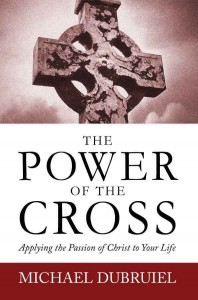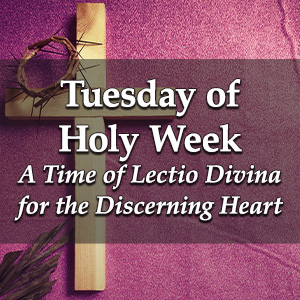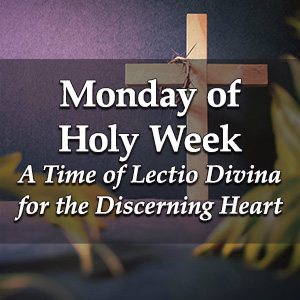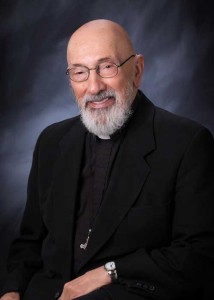Podcast: Play in new window | Download (Duration: 30:01 — 20.7MB) | Embed
Subscribe: Apple Podcasts | Spotify | Amazon Music | Android | Pandora | iHeartRadio | JioSaavn | Podchaser | Gaana | Podcast Index | Email | TuneIn | Deezer | Anghami | RSS | More

Day 7 – The Last Retreat by St. Elizabeth of the Trinity- Beginning to Pray with Dr. Anthony Lilles
Dr. Anthony Lilles and Kris McGregor reflect on the seventh day of The Last Retreat by St. Elizabeth of the Trinity. Dr. Lilles explains how Elizabeth sees the soul as a “heaven” that proclaims the glory of God, drawing from Psalm 19, “The heavens declare the glory of God.” Just as the physical heavens shift through day and night, so too does the soul experience seasons of light and darkness. These shifts are not random but part of God’s presence and action in the soul.
St. Elizabeth teaches us that the soul becomes radiant by faithfully responding to God’s interior movements—subtle invitations to act with love, withdraw from conflict, or enter into prayer. These promptings don’t always come as words but are more often sensed deeply within, illuminating the soul from within and revealing God’s glory.
Discerning Hearts Reflection Questions
- How do I recognize and respond to God’s quiet promptings in my heart throughout the day?
- In what ways do the joys and struggles in my life reflect the glory of God?
- Do I take time to discern whether I am experiencing spiritual darkness or emotional distress?
- Who are the wise and faithful companions I turn to for spiritual discernment and support?
- How do I unite my personal sufferings—physical, emotional, or spiritual—to the redemptive suffering of Christ?
- Am I open to becoming a radiant soul by faithfully obeying God’s interior commands, even in small things?
- What prevents me from trusting that God’s presence remains with me in seasons of spiritual dryness or confusion?
- How can I become a source of hope and light to those around me through quiet fidelity to God’s will?

From “Last Retreat Day 7 pt 1” found in The Complete Works vol 1:
17. “Coeli enarrant gloriam Dei.” 101 This is what the heavens are telling: the glory of God.
Since my soul is a heaven in which I live while awaiting the “heavenly Jerusalem,” 102 this heaven too must sing the glory of the Eternal, nothing but the glory of the Eternal.
“Day to day passes on this message.” 103 All God’s lights, all His communications to my soul are this “day which passes on to day the message of His glory.” “The command of the Lord is clear,” sings the psalmist, “enlightening the eye. . . .” 104 Consequently, my fidelity in corresponding with each of His decrees, with each of His interior commands, makes me live in His light; it too is a “message which passes on His glory.” But this is the sweet wonder: “Yahweh, he who looks at you is radiant!” 105 the prophet exclaims . The soul that by the depth of its interior gaze contemplates its God through everything in that simplicity which sets it apart from all else is a “ radiant” soul: it is “a day that passes on to day the message of His glory.”
18. “Night to night announces it.” 106 How very consoling that is! My weaknesses, my dislikes, my mediocrity , my faults themselves tell the glory of the Eternal! My sufferings of soul or body also tell the glory of my Master! David sang: “How shall I make a return to the Lord for all the good He has done for me?” This: “I will take up the cup of salvation.” 107 If I take up this cup crimsoned with the Blood of my Master and, in wholly joyous thanksgiving, I mingle my blood with that of the holy Victim, it is in some way made infinite and can give magnificent praise to the Father. Then my suffering is “a message which passes on the glory” of the Eternal.
We would like to thank Miriam Gutierrez for providing “the voice” of St. Elizabeth for this series
For other episodes in the series visit the Discerning Hearts page for Dr. Anthony Lilles
Anthony Lilles, S.T.D., has served the Church and assisted in the formation of clergy and seminarians since 1994. Before coming to St. Patrick’s, he served at seminaries and houses of formation in the Archdiocese of Denver and the Archdiocese of Los Angeles. The son of a California farmer, married with young adult children, holds a B.A. in theology from the Franciscan University of Steubenville with both the ecclesiastical licentiate and doctorate in spiritual theology from the Pontifical University of Saint Thomas Aquinas in Rome (the Angelicum). An expert in the writings of St. Elizabeth of the Trinity and the Carmelite Doctors of the Church, he co-founded the Avila Institute for Spiritual Formation and the High Calling Program for priestly vocations. He also founded the John Paul II Center for Contemplative Culture, which hosts symposiums, retreats, and conferences. In addition to his publications, he blogs at www.beginningtopray.com .

 Steps to Take as You Follow Christ
Steps to Take as You Follow Christ
 ! We HIGHLY encourage you to download this exceptional work.
! We HIGHLY encourage you to download this exceptional work.
 Tuesday of Holy Week – A Time of Lectio Divina for the Discerning Heart Podcast
Tuesday of Holy Week – A Time of Lectio Divina for the Discerning Heart Podcast


 Monday of Holy Week – A Time of Lectio Divina for the Discerning Heart Podcast
Monday of Holy Week – A Time of Lectio Divina for the Discerning Heart Podcast
